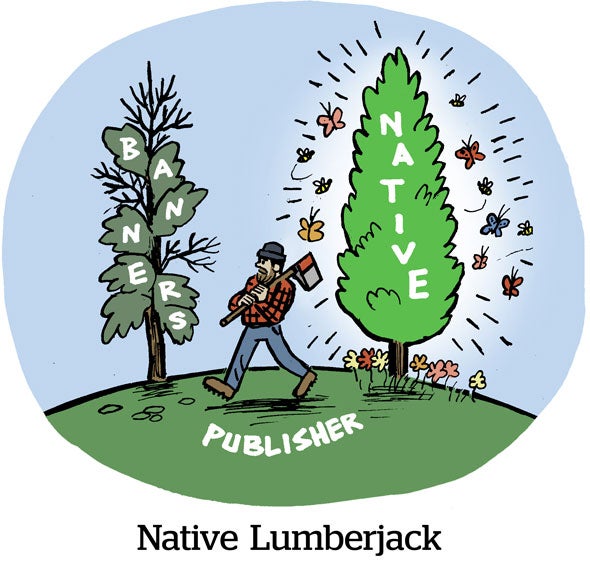CES Bound
Dealmaking and AI (oh, and blackjack) are top of mind for marketers heading to CES in Las Vegas next week.
Agencies, brands and ad tech companies typically treat the show as a chance to get a jumpstart on new business in the new year. But in 2025, expect more closed-door meetings that “center on striking larger but fewer partnerships,” MediaLink’s Mark Wagman tells Ad Age.
Meanwhile, consolidation is in the air, especially in TV Ad Land, which Wagman attributes in part to TV advertisers getting excited about the potential of AI.
Speaking of, more ad tech-focused AI startups are cropping up, and they’ll no doubt be descending on CES, too.
These AI startups are fighting tooth and nail to impress advertisers and agencies, as buyers become increasingly selective about the number of ad tech partners they work with.
Advertisers and media buyers, on the other hand, will be probing prospective AI partners about their large language models, new marketing personalization tools and AI agents, i.e., chatbots.
Let the competition begin.
Hard Truths For Soft News
Advertisers say they want to collaborate with news publishers. But pubs don’t expect brands to reengage with hard news in 2025, The Wall Street Journal reports.
Keyword blocklists still thrive years after repeated pleas by publishers and agencies to abandon these blunt instruments.
But it’s not just hard news that’s being blocked.
You may have heard, for example, that 40% of The Washington Post’s inventory was deemed brand-unsafe by automated solutions last year. Apparently, not even WaPo’s crossword puzzle is safe.
And neither is innocuous lifestyle content. An article ranking boxed brownie mixes was flagged for discussing “grocery, drug [and] mass-market” retailers – because “drug” is a commonly banned keyword. Another WaPo story about a thunderstorm got flagged as being related to “arms and ammunition,” because the sound of thunder was compared to “artillery.”
Agencies like GroupM defend single-digit percent ad expenditures on hard news, claiming they’ve reoriented budgets for sports and entertainment coverage. But, as WaPo’s travails illustrate, brand safety is also demonetizing the softer stuff.
GroupM’s Susan Schiekofer says she tries to help advertisers avoid news while still serving ads on finance or automotive stories. But, she adds, there is still “a little throwing out the baby with the bathwater.”
Need A Lyft?
In a fun bit of speculation, Anita Ramaswamy, a columnist for The Information, makes the case for Amazon to acquire Lyft in 2025.
For one, Lyft’s been outpaced by Uber and has invested less in autonomous driving. Lyft’s CEO was also an early Amazon employee hired by Jeff Bezos.
Unmentioned in the column is that the next few years will be an opportunity for large businesses to make acquisitions with more sympathetic regulators in charge.
Also unmentioned are the potential second-order effects for Lyft’s nascent advertising business. Lyft has inventory that falls under digital out-of-home, retail media, in-app display and some grab-bag video.
It would be an interesting deal for others in the space, too, such as T-Mobile. In 2022, T-Mobile acquired Octopus Interactive, a startup that convinces rideshare drivers to carry tablets for games and media (and to serve ads, of course).
But back to Amazon, pulling Lyft’s deals and inventory into its own content fortress would be another truly new canvas for Amazon’s ad machine.
In the new world of machine learning-controlled platform campaigns (the PMaxes of the world), only Amazon can match Google’s breadth of inventory and overall consumer touch points.
But Wait! There’s More!
AI-powered virtual product placement startup Rembrand secures $23 million in Series A funding. [Axios]
A federal appeals court has decided the FCC lacks statutory authority to impose its proposed net neutrality rules and is blocking them from going into effect. [PDF]
Your silver lining of the day: Five reasons to feel optimistic about the media industry. [Adweek]
The new CNBC+ app will cost consumers $14.99 per month. [Variety]
Many creators aren’t convinced the TikTok ban is really going to happen. [WSJ] Meanwhile, TikTok is promising ban-related refunds to keep brands spending on the platform. [The Information]
Reuters and Gannett will sell bundled subscriptions. [Axios]
Apple agrees to pay $95 million to settle a class action lawsuit alleging its voice assistant Siri recorded private conversations and sold the data to advertisers. [Ars Technica]
You’re Hired
Comscore names Jackelyn Keller as its new CMO. [release]
Former Salon and Snopes CRO Justin Wohl joins publisher tech company Aditude as VP of strategy. [release]
Simulmedia appoints Jonathan Steuer as chief science officer. [release]












